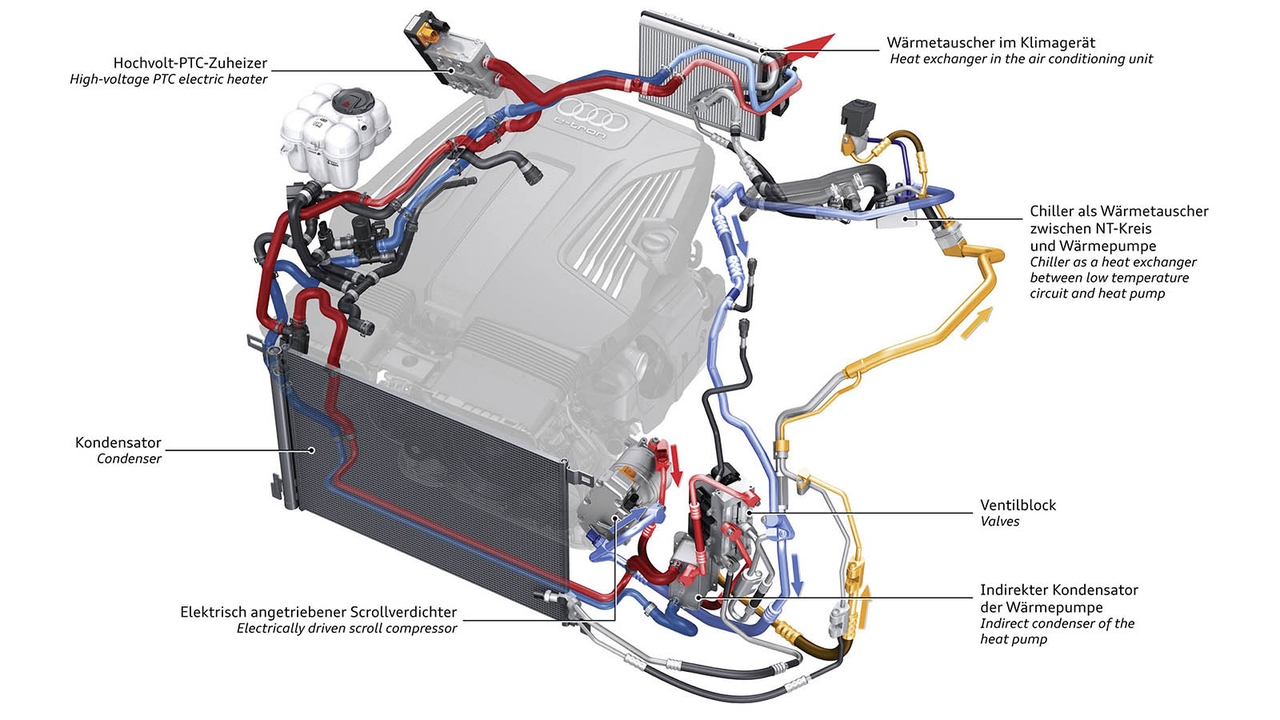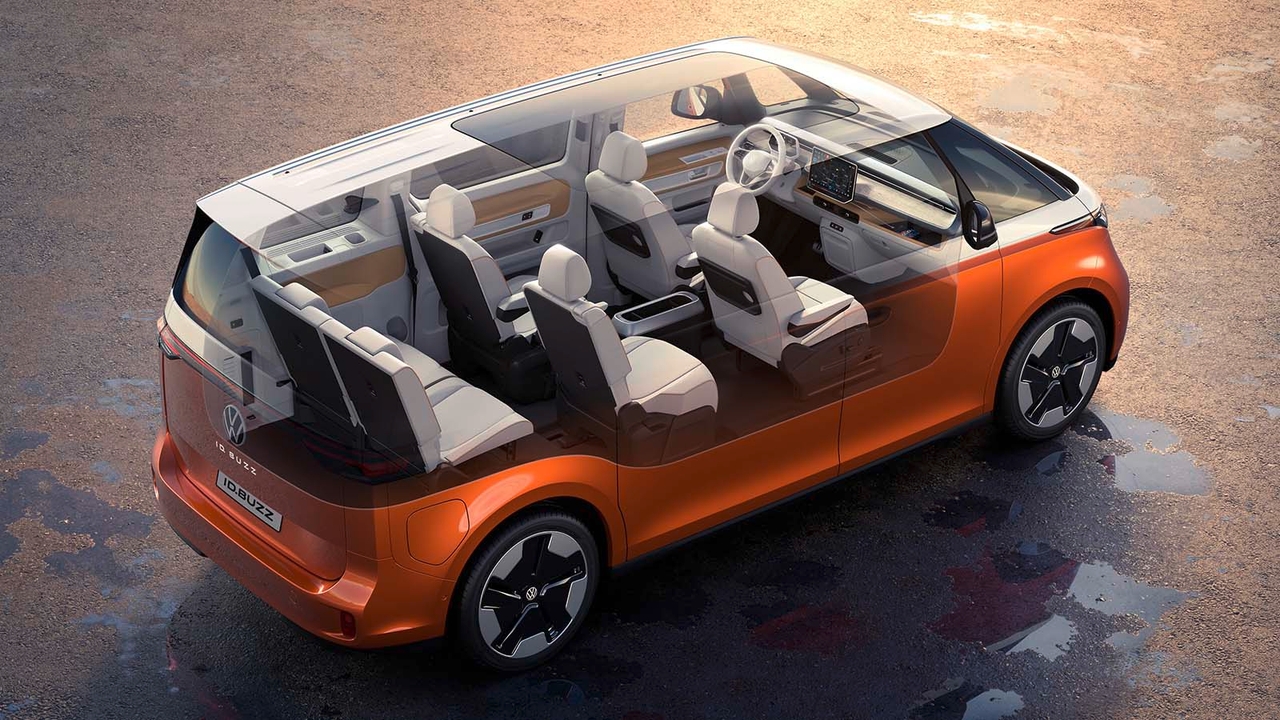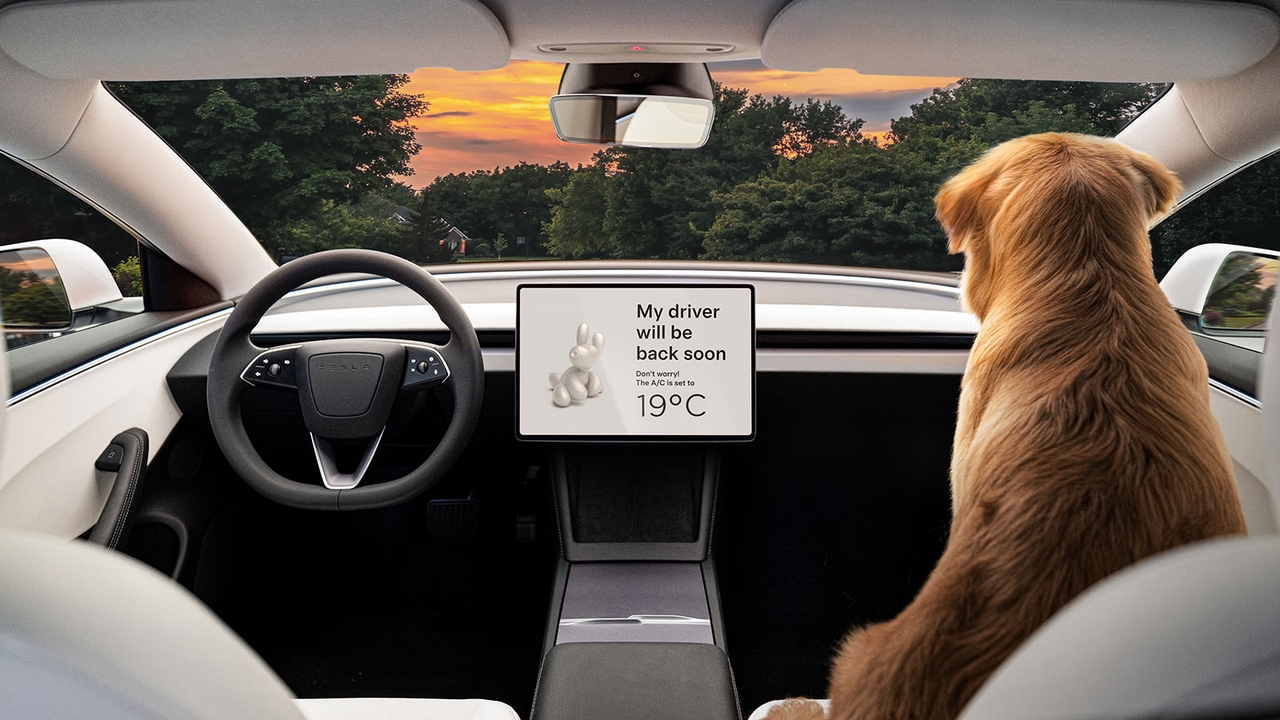'Heat pump' might sound like the third studio album of an '80s glam metal band, but it's actually a clever way to warm your car's cabin when it's cold.
It's a more efficient way to raise your interior temperature compared to using the car's engine or a resistive heating element. This means you waste less energy warming the car, leaving you more to actually drive the car – which is why heat pumps are often found in electric cars.
What is a car heat pump?

A heat pump is a device used by electric cars to warm their cabins on cold days. EVs need a separate device to do this because they don't use fuel-powered engines, which normally make plenty of waste heat energy that can be used to warm you up.
Heat pumps are plumbed into a car's regular ventilation system alongside its regular air conditioning. You don't have to do anything differently on the dashboard, just set your desired temperature on the climate control and the car will work out how much heat pump and air conditioner to use to reach the right temperature.
How does a heat pump work in a car?

The easiest way to understand how a heat pump works is to think of it as an air conditioner running in reverse. It captures heat energy from outside the car, compresses it to raise the temperature further, and then uses it to warm the car's cabin.
That might sound a bit complicated – and it is – but it uses less energy than other methods for heating your car. With less energy wasted warming the cabin, you have more energy available to drive your EV further.
Are heat pumps necessary for electric cars?

Heat pumps aren't necessary for electric cars, but they're a good idea. Older and more affordable EVs tend to use resistive heating elements – similar to the way your kettle works. These are quick, reliable and effective, but they use more energy than heat-pump based systems, and as such drop your electric driving range more than a heat pump would.
That's why more EVs are now being offered with heat pumps as standard or as optional equipment. Devoting less battery energy to warming the car on a cold day means there's more left over to drive the wheels.
Are heat pumps worth it in electric cars?

Broadly speaking, yes – heat pumps are a good idea for EVs. They use less energy than older resistive heaters so you have more charge available to drive the car further. Heat pumps also work best when they're heating well-insulated spaces, so your car's interior is the perfect environment for them to work effectively.
The answer is a little less clear for EVs that have heat pumps on their options list. In these cases, equipping the heat pump will certainly unlock a few extra miles of range from the battery pack. However, whether the extra range is worth the additional price you paid will be influenced by your needs and budget. It might be worth choosing a cheaper EV without a heat pump if it's a mainly urban car where maximum range is less of a concern.
Which electric cars have heat pumps?

Some carmakers have started fitting heat pumps as standard to their EVs – this includes brands such as Tesla, Porsche and BMW. You'll also find a heat pump on the Jaguar I-Pace, which is impressively affordable as a used car.
Many more offer heat pumps as optional extra equipment on their EVs. This includes cars like the Volkswagen ID.3, Hyundai Ioniq 5 and Skoda Enyaq.
Find a great value used car
Whether you're looking for an electric car with this clever heating technology, or just a great-value used car, Motorpoint's got you covered. For more info, read our explainer on how a car's climate control works.

































